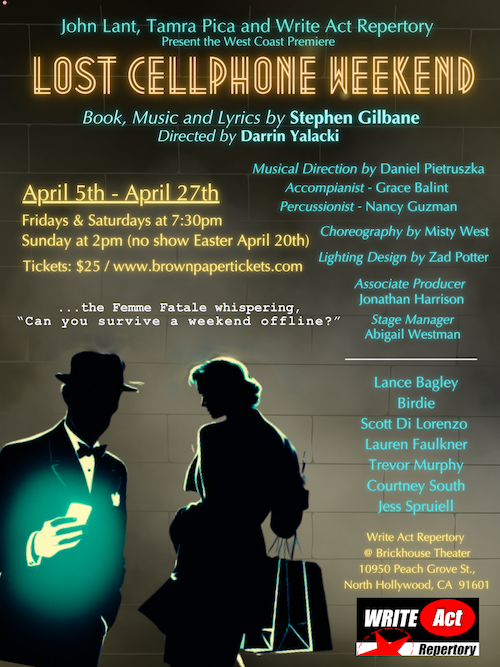Power of Sail
Reviewed by Deborah Klugman
Geffen Playhouse
Through March 20
Recommended
In a society that celebrates diversity and free speech, how tolerant should open-minded people be when the voice being given a platform is one of hate? Playwright Paul Grellong lays out the arguments on both sides in this somewhat wordy but ultimately trenchant drama featuring Bryan Cranston in a superbly crafted pivotal performance.
Charles Nichols (Cranston) is a well-respected history professor at Harvard who for years has sponsored a symposium that welcomes a diversity of voices. This event usually transpires without a hitch. But this year, unlike prior ones, Nichols has generated controversy and vociferous student protest by inviting a well-known white nationalist to speak. Both Amy, the Jewish department head (Amy Brenneman) and Baxter (Brandon Scott) a former student now a recognized “talking head” on MSNBC (and an African-American), try to persuade him to change course and withdraw the invite. Charles refuses, arguing that the answer to hate speech is not to suppress it but to air it and from there go on to expose and defeat it. Amy and Baxter’s positions are that simply affording hate a platform is giving it a win. “A society’s infinite tolerance of open intolerance leads to one place only: the destruction of that society,” Baxter tells him, referencing the philosopher Karl Poppers’ Paradox of Tolerance —a theory that a tolerant society must retain the right to be intolerant of intolerance if it is to survive.
Charles not only brushes aside Baxter’s cautioning but refuses Amy’s plea that he meet with the angry students. Instead, accompanied by Lucas (Seth Numrich), a current doctoral candidate under his aegis, he travels to Maine to meet with the nationalist at a secret compound. When word of the when-and-where of the meeting is somehow leaked, an unexpected chain of events ensues, bringing the professor’s tidy world to the point of ruin.
Directed by Weyni Mengesha, Power of Sail commences as an ostensibly straightforward dialogue about the limits of free speech, then gains dimension when the drama reverses gear in the second half to portray background events that we aren’t privy to in the first. The result is a more complex work that offers a fuller understanding of the professor and his motives and a more probing —and frightening— take on the subversive elements embedded in our seemingly stolid, politically correct communities.
From curtain up to curtain down, Cranston is charismatic and on-point as the narcissistic, self-deluding Charles, his performance bestowing heft on the narrative. Scott, whose character might have remained a dichotomous device in the hands of lesser talent, is rock solid as Charles’ intelligent principled foil.
Though she gains vitality in the second half, Brenneman’s dean is initially too generic; there’s room here for more color and a personal stamp. Tedra Millan displays requisite fire as a Jewish graduate student whose discomfort with the appearance of a Nazi on campus prods her to action. Numrich handles his role ably. As an FBI investigator, Donna Simone Johnson, like Brenneman, has opportunities yet undeveloped to deepen her performance.
The ensemble’s other bright light, besides Cranston and Scott, is the scene-stealing Hugo Armstrong as Frank, the bartender in the dive the alcoholic Charles frequents. Frank and Charles share a passion for sailing (Indeed, the play’s title references a maritime term for a boat without engine that travels by power of sail and hence is given courteous right-of-way by boats that have them. It’s a crucial metaphor for extremist movements that demand deference from mainstream voices because they are ostensibly smaller and weaker.) In his brief appearance, Armstrong not only affords us the heartiest laugh of the evening but conveys in his person the ambiguous shadows that prey on our freedom.
The production’s weakest link — and it’s a big one, literally —is Rachel Myers’ scenic design, which, its handsome aspects notwithstanding, compresses the action into a series of crowded spaces downstage, while the spacious rear of the proscenium, representing the hallowed tree-decked halls of Harvard, goes unused. This choice limits the actors’ movements, at times forcing them to carefully tread the rim of the stage. By contrast, Jonathan Snipes music and sound design elaborates well on the drama.
Geffen Playhouse, 10886 Le Conte Ave., Westwood; Tues.-Fri., 8 pm, Sat., 3 & 8 pm, Sun., 2 & 7 pm; thru March 20. www.geffenplayhouse.org Running time: one hour and 40 minutes with no intermission.
Stage Raw’s first weekly podcast, Stages of Our City, is now available. It features Julyza Commodore and Terry Morgan, with their views on Slave Play (Mark Taper Forum), Umoja (Black Creators Collective at the Will Agee Theatre in Inglewood), Power of Sail (Geffen Playhouse), and How We Got On (Sacred Fools).











